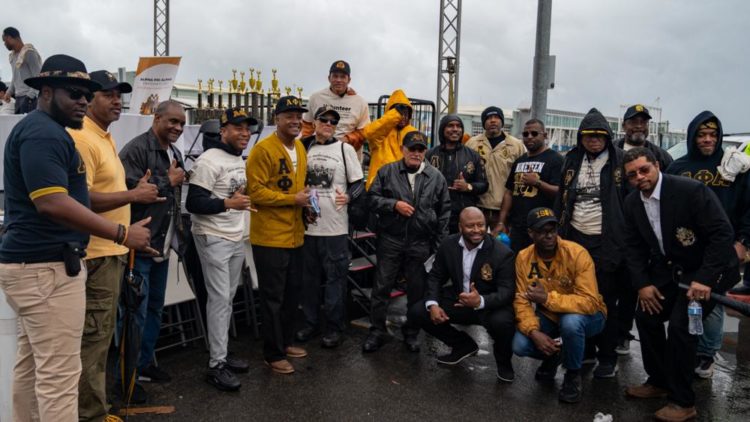Dr. Martin Luther King Jr. (MLK) is and was an American hero and icon who sacrificed his life to help bring equality and a higher quality of life to the poor, disenfranchised, and minorities of the United States. To this day, the impact of his legacy reverberates and inspires many throughout the country.
Among those inspired is William Gillespie, a former Marine Corps officer and current member of the Alpha Phi Alpha fraternity, the same fraternity that Dr. King was a member of and which approximately one-third of its brothers are either active or former service members.
For the last 10 years, Gillespie has taken time out of his work and personal life to help organize the MLK day parade in San Diego, California, because he feels it is imperative to honor his legacy.
“I think it’s absolutely critical to remember the legacy and all the things that he’s done,” said Gillespie. “[The parade] is an important display and representation of the things that he did.”
Growing up in Mobile, Alabama in the 1970s, Gillespie witnessed firsthand the kind of discrimination that MLK labored to end in this country.
Gillespie recalls a story from his childhood in which his mother parked in the front of a grocery store but they both had to walk around to the back of the store for entry to avoid confrontation and potential violence from other shoppers.
“I remember asking ‘Mommy why do we walk all the way around the store when we could’ve walked in through the front?’ and in her nice way, she didn’t really answer, and that was the answer,” said Gillespie. “She knew those conditions, she grew up in Alabama experiencing the harshness of segregation directly… her first obligation was to protect her kids.”
It was a combination of moments like this and the lessons he learned from the legacy of Dr. King that led Gillespie to a life of service for his community through the Alpha Phi Alpha fraternity and his country through the Marine Corps.
He was commissioned to be an officer in the Marine Corps in the 1980s but his days of discrimination were not over.
Often as the only African American officer in his unit, he said he was prejudged as being incompetent and inferior to his white counterparts. But remembering Dr. King’s philosophies of nonviolent conflict resolution, he vowed to solve this problem through his work ethic.
“I resolved to convince them that I’m here to be judged by my ability. I focused on outworking them,” said Gillespie. “Anything that they think my race might limit me in, I’m going to be better at and have the patience and resilience to not allow it to adversely affect me.”
Already have an account? Sign In
Two ways to continue to read this article.
Subscribe
$1.99
every 4 weeks
- Unlimited access to all articles
- Support independent journalism
- Ad-free reading experience
Subscribe Now
Recurring Monthly. Cancel Anytime.
Gillespie continues to do his part in honoring the legacy of Dr. King so that the sacrifices of the generations before him are not lost on the generations after him.
“A lot of people labored hard to get where we are today,” said Gillespie. “and it is critical that we remember all the sacrifices that people have made so we could be where we are today.”
This year he and his fraternity brothers helped host the 41st annual MLK Day Parade after a two-year hiatus due to the pandemic and although the parade was hit with some rain showers there was still a sizable attendance of schools, activist groups, and social clubs all present to honor Dr. King.
“I feel good about the turnout,” said Gillespie. “[My favorite part] was just seeing all the participants out there, that was the highlight.”
***
This piece is written by Petty Officer 2nd Class Elisha Smith from the Navy Public Affairs Support Element West. Want to feature your story? Send your draft here today.










COMMENTS